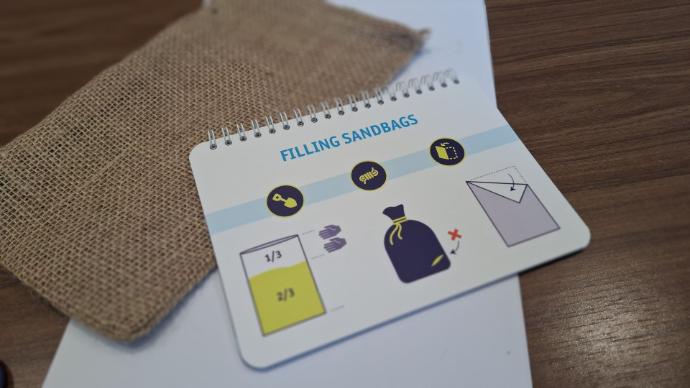On April 1 close to 70 participants from our partners and associated organisations took part in the opening plenary of the 4th Partner Meeting within the FlashFloodBreaker Partnership in Hasselt, Flanders.
DAY 1
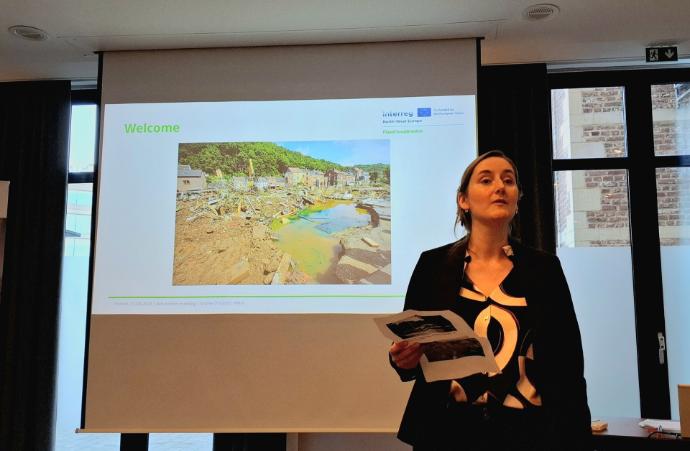
Welcomed by Sophie d´Hondt from this year´s host organisation VMM and Project Coordinator Marie-Édith Ploteau from Emschergenossenschaft the project community then split into three Break Out Sessions where results and develments in the fields of improvement of early warning systems, transnational training schemes and the involvement of residents, voluntary sector and private partners were shared and discussed.
Early warning systems
Daniela Falter (EG) and Johan Auwerkerken (VMM) gathered the project partners among the question on how to improve the different early warning systems.
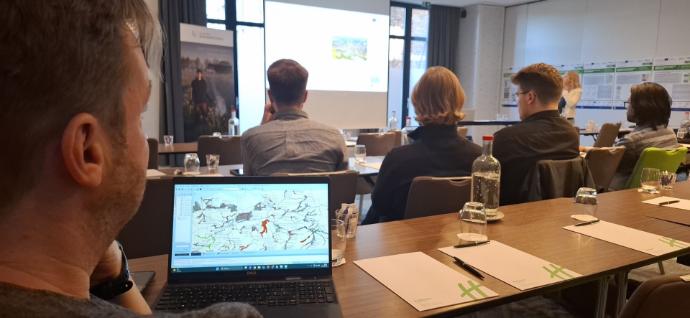
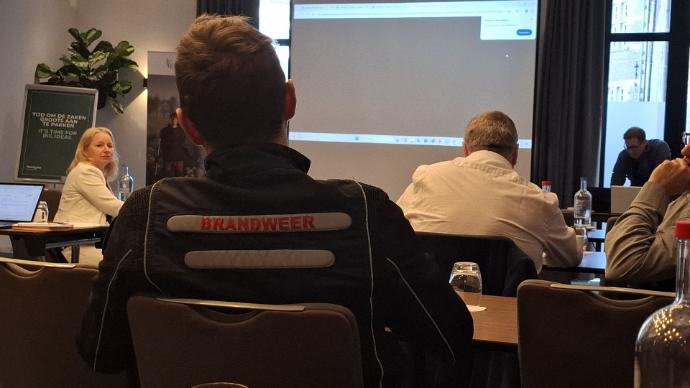
Training the trainers in a transnational way
Marianne Booltink (STOWA) and Christian von Spizcak (Duisburg Firebrigade) gathered our partners in another Break Out Session dealing with the science of sandbags, showcasing methods and techniques in an interactive exercise.
Oscar van Dam (STOWA) showcased a sandbag manual, that could put into practice among our international partners in the very Session itself.
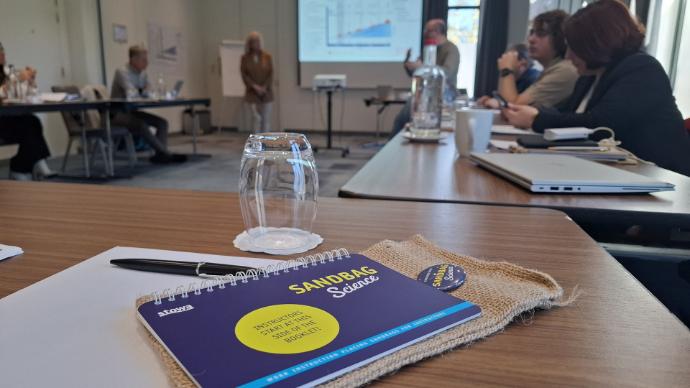
Practicing with sandbags
Oscar van Dam on how the sandbag miniatures he designed can be used to train the trainers to be better prepared for flashfloods
Discover hereInvolvement of residents, voluntary sector and private partners – concept and contracts
Colin Glesner (SPW) and Eelco Koohlaas (HHNK) established a co-creative discussion around the question on how to combine existing crisis mangement systems with the involvement of the private sector (businesses) , combining untrained volunteers in case of hazards as well.
As well they discussed the state of the civil society in post-crisis phase and the emotional impact that can be created by disasters.
Listen to their remarks here:
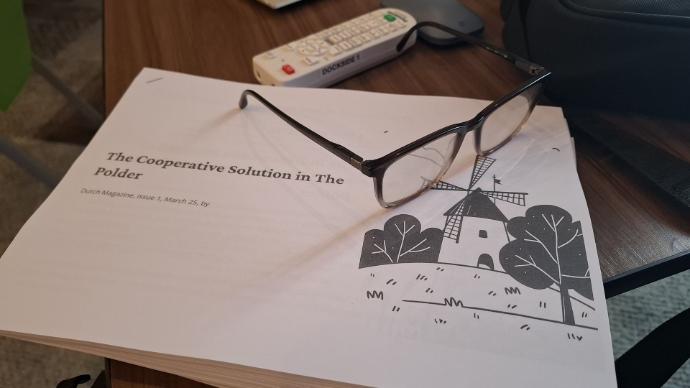
Train members of local crisis units
In this session hosted by Telka Schneider (EGLV) participants presented and discussed different local and national approaches regarding preparation and evaluation of crisis units. This includes different checklists and scenarios that can be implemented via different methods such as serious games, podcasts, e-learning schemes or especially designed apps that follow the needs that dictate local conditions.
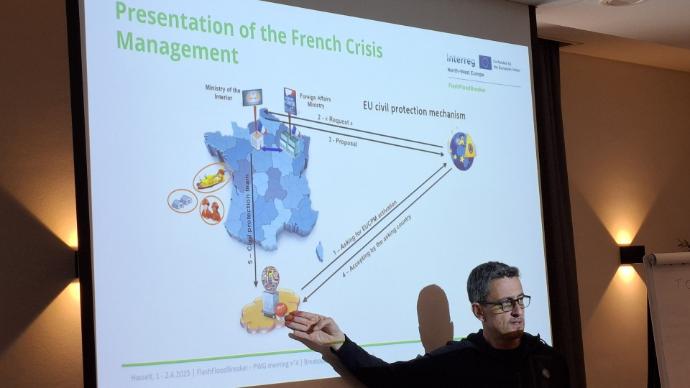
??? ist explaining the french scheme for crisis management and its implications
A Section Subtitle
Comparison of AI model with current traditional models. improve AI model considering more data and local conditions. (HHNK)
Conceptualize flood impact forecasting approach with AI. (LV)
Develop an explainable AI frameworkfor flood prediction models. (Uni Lu)
AI implementation with open source image repos- Tensor Flow. (MTU)

